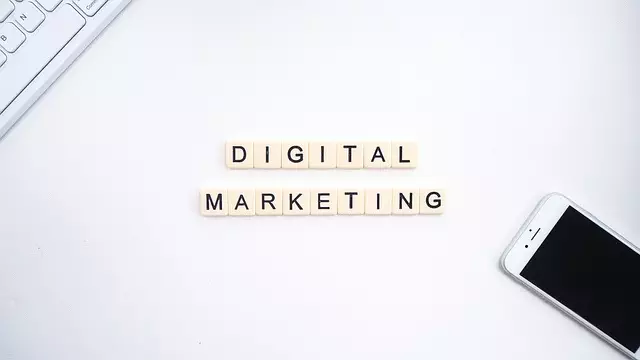A Digital Marketing Course introduces students to marketing automation—a powerful tool that streamlines tasks, enhances productivity, and personalizes customer experiences. By automating repetitive activities like email campaigns and social media posts, businesses can save time, resources, and boost efficiency. Courses teach professionals to leverage real-time analytics for data-driven decisions, improve targeting, increase conversion rates, and achieve better ROI. Key components include precise audience segmentation, integrating automation tools like CRM systems, and continuously optimizing campaign performance metrics. Automated campaigns guide leads through the sales funnel with personalized content, fostering trust and engagement, ultimately converting prospects into loyal customers.
“Marketing automation has become a game-changer in the digital marketing landscape. In this comprehensive guide, we’ll explore the fundamentals of marketing automation training, equipping you with insights for successful digital transformation. From understanding the core concepts to choosing the ideal tools, this article covers all aspects.
Learn how automation streamlines processes, enhances lead generation, and provides valuable data-driven insights. Discover key strategies for building targeted campaigns and optimizing your marketing efforts. Start your journey towards mastering a Digital Marketing Course today!”
Understanding Marketing Automation: A Comprehensive Overview

Marketing automation is a game-changer in today’s digital marketing landscape, offering efficient solutions to streamline various tasks. It involves using software to automate marketing activities, enabling businesses to focus on strategic growth and customer engagement. This technology allows marketers to create personalized experiences at scale, from lead nurturing to customer retention, by automating email campaigns, social media posts, and content delivery.
In a comprehensive Digital Marketing Course, understanding marketing automation begins with grasping its potential to enhance productivity and reach. By leveraging automated tools, marketers can efficiently manage and analyze vast customer data, identify trends, and make informed decisions. This overview includes learning about different automation platforms, their capabilities, and best practices for implementation, ensuring businesses can harness the power of automation for successful digital marketing campaigns.
The Benefits of Implementing Automation in Digital Marketing

Implementing automation in digital marketing offers numerous advantages that can significantly enhance your marketing efforts. By leveraging automated tools, businesses can streamline their processes, saving time and resources while increasing efficiency. Automated systems can handle repetitive tasks such as email campaigns, social media posts, and content scheduling, allowing marketers to focus on more strategic initiatives. This frees up valuable time for professionals to develop creative strategies, analyze data, and personalize customer interactions.
Moreover, marketing automation training equips professionals with the skills needed to utilize these advanced tools effectively. A digital marketing course can provide insights into optimizing campaigns based on real-time analytics, enabling marketers to make data-driven decisions. This precision leads to better targeting, higher conversion rates, and improved ROI. With automation, businesses can create personalized experiences for their customers, fostering stronger relationships and driving long-term success in an increasingly competitive digital landscape.
Key Components of an Effective Marketing Automation Strategy

In today’s digital era, a well-crafted Marketing Automation Strategy is a game-changer for businesses aiming to streamline their operations and boost efficiency. A Digital Marketing Course often highlights several key components that contribute to an effective strategy. Firstly, identifying your target audience and understanding their behaviors and preferences is crucial. By segmenting customers based on demographics, purchasing history, or online interactions, you can tailor your marketing efforts precisely. This personalized approach enhances engagement and improves conversion rates.
Additionally, integrating various automation tools and technologies is essential. These range from email marketing platforms to customer relationship management (CRM) systems, which enable automated lead nurturing, personalized content delivery, and efficient data management. A Digital Marketing Course will often emphasize the importance of tracking and analyzing campaign performance metrics to continuously optimize strategies. This ensures that your marketing efforts remain relevant and effective in a dynamic market.
Choosing the Right Tools for Your Digital Marketing Course

When designing a Digital Marketing Course, selecting the appropriate tools is paramount for an engaging and effective learning experience. The right tools can democratize complex concepts, providing hands-on practice with real-world simulations. This ensures students not only understand theoretical aspects but also gain practical skills applicable in today’s digital landscape.
Focus on choosing platforms that offer a comprehensive suite of features catering to various facets of digital marketing—from content creation and social media management to email automation and analytics tracking. Tools like HubSpot, Mailchimp, Google Analytics, and Canva are popular choices due to their user-friendly interfaces and robust capabilities, making them ideal for both novice and advanced learners in any Digital Marketing Course.
Building and Nurturing Leads with Automated Campaigns

In a comprehensive Digital Marketing Course, understanding how to build and nurture leads is paramount. Automated campaigns play a pivotal role in this process by streamlining and personalizing communication with potential customers. Through sophisticated algorithms, marketing automation tools segment audiences based on behaviour, preferences, and engagement levels, ensuring that each lead receives tailored messaging. This strategic approach enhances conversion rates as it delivers the right content to the right person at the right time.
Campaigns can be designed to nurture leads through various stages of the sales funnel, from initial contact to purchase and beyond. Automated emails, for instance, can provide valuable insights, offer solutions to common problems, and gently guide prospects towards a desired action. By combining relevant content with timely delivery, businesses foster trust and maintain engagement, ultimately increasing the likelihood of converting leads into loyal customers.
Measuring Success and Optimizing Your Marketing Automation Flow

Measuring success is a crucial step in any marketing endeavor, and marketing automation is no exception. When embarking on a digital marketing course that incorporates automation, understanding key performance indicators (KPIs) becomes essential. By setting clear goals and tracking relevant metrics such as email open rates, click-through rates, conversion ratios, and customer acquisition costs, marketers can assess the effectiveness of their automated campaigns. These insights allow for continuous improvement and fine-tuning of the marketing automation flow to ensure optimal results.
Optimizing your marketing automation involves a data-driven approach. Analyzing campaign performance data helps identify bottlenecks and areas for enhancement. For instance, if certain segments have lower engagement rates, adjusting content strategy or triggering automated flows at different times could improve their interaction. Regularly reviewing and iterating on the automation process enables marketers to stay agile, adapt to evolving customer behaviors, and ultimately enhance the overall marketing ROI, making it a vital aspect of any successful digital marketing course.



